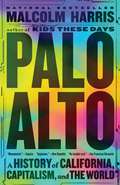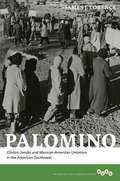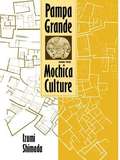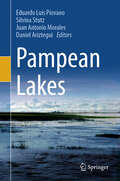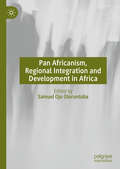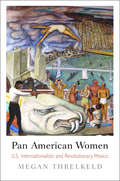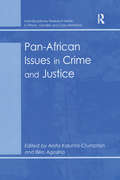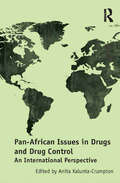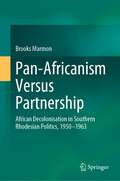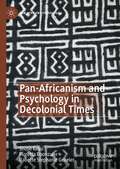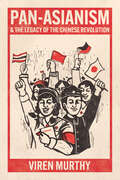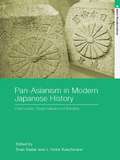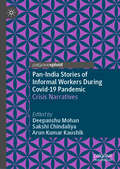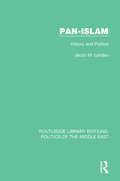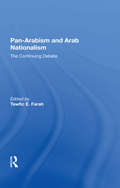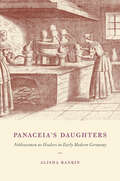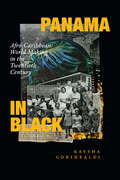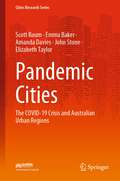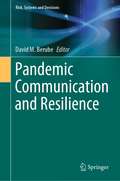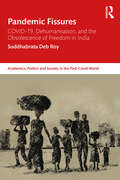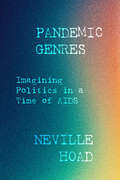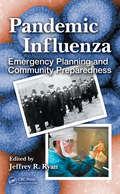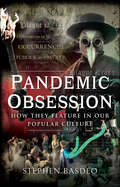- Table View
- List View
Palo Alto: A History of California, Capitalism, and the World
by Malcolm HarrisNamed One of the Year's Best Books by VULTURE • THE NEW REPUBLIC • DAZED • WIRED • BLOOMBERG • ESQUIRE • SALON • THE NEXT BIG IDEA CLUBThe history of Silicon Valley, from railroads to microchips, is an &“extraordinary&” story of disruption and destruction, told for the first time in this comprehensive, jaw-dropping narrative (Greg Grandin, Pulitzer Prize-winning author of The End of the Myth). Palo Alto&’s weather is temperate, its people are educated and enterprising, its corporations are spiritually and materially ambitious and demonstrably world-changing. Palo Alto is also a haunted toxic waste dump built on stolen Indian burial grounds, and an integral part of the capitalist world system. In PALO ALTO, the first comprehensive, global history of Silicon Valley, Malcolm Harris examines how and why Northern California evolved in the particular, consequential way it did, tracing the ideologies, technologies, and policies that have been engineered there over the course of 150 years of Anglo settler colonialism, from IQ tests to the "tragedy of the commons," racial genetics, and "broken windows" theory. The Internet and computers, too. It's a story about how a small American suburb became a powerful engine for economic growth and war, and how it came to lead the world into a surprisingly disastrous 21st century. PALO ALTO is an urgent and visionary history of the way we live now, one that ends with a clear-eyed, radical proposition for how we might begin to change course.
Palomino
by Elizabeth JolleyPALOMINO Laura is in her fifties, a gynecologist now barred from her profession. For ten years, she has lived alone on a remote valley farm in self-imposed isolation. Then, returning by ship from a journey around the world (meant as an act of self-healing, -to reawaken her senses), Laura sees Andrea, a young woman whose golden hair and complexion remind her of the beautiful palomino horses that run together in paddocks in clear view of her verandah. Later, by chance, the two women meet at a dinner party, and to Laura's delight, Andrea insists on an extended visit to Laura's farm. Here, they share early morning walks in the jarrah forest, evenings of music and intimate conversation, and much reading-of diaries and letters, in particular. In this idyllic setting, amid orchards and rain storms, each woman seeks to make herself known to the other. The passion that blossoms is rare and deeply felt. As time passes, events long suppressed are revealed, unorthodox entanglements of friendship and love and a bizarre medical accident (or was it murder?).
Palomino: Clinton Jencks and Mexican-American Unionism in the American Southwest
by James J. LorenceThe first comprehensive biography of progressive labor organizer, peace worker, and economist Clinton Jencks (1918-2005), this book explores the life of one of the most important political and social activists to appear in the Southwestern United States in the twentieth century. A key figure in the radical International Union of Mine, Mill, and Smelter Workers (IUMMSW) Local 890 in Grant County, New Mexico, Jencks was involved in organizing not only the mine workers but also their wives in the 1951 strike against the Empire Zinc Company. He was active in the production of the 1954 landmark labor film dramatizing the Empire Zinc strike, Salt of the Earth, which was heavily suppressed during the McCarthy era and led to Jencks's persecution by the federal government. Labor historian James J. Lorence examines the interaction between Jencks's personal experience and the broader forces that marked the world and society in which he worked and lived. Following the work of Jencks and his equally progressive wife, Virginia Derr Jencks, Lorence illuminates the roots and character of Southwestern unionism, the role of radicalism in the Mexican-American civil rights movement, the rise of working-class feminism within Local 890 and the Grant County Mexican American community, and the development of Mexican-American identity in the Southwest. Chronicling Jencks's five-year-long legal battle against charges of perjury, this biography also illustrates how civil liberties and American labor were constrained by the specter of anticommunism during the Cold War. Drawing from extensive research as well as interviews and correspondence, this volume highlights Clinton Jencks's dramatic influence on the history of labor culture in the Southwest through a lifetime devoted to progress and change for the social good.
Pampa Grande and the Mochica Culture
by Izumi ShimadaPampa Grande, the largest and most powerful city of the Mochica (Moche) culture on the north coast of Peru, was built, inhabited, and abandoned during the period A.D. 550-700. It is extremely important archaeologically as one of the few pre-Hispanic cities in South America for which there are enough reliable data to reconstruct a model of pre-Hispanic urbanism.This book presents a "biography" of Pampa Grande that offers a reconstruction not only of the site itself but also of the sociocultural and economic environment in which it was built and abandoned. Izumi Shimada argues that Pampa Grande was established rapidly and without outside influence at a strategic position at the neck of the Lambayeque Valley that gave it control over intervalley canals and their agricultural potential and allowed it to gain political dominance over local populations. Study of the site itself leads him to posit a large resident population made up of transplanted Mochica and local non-Mochica groups with a social hierarchy of at least three tiers.
Pampean Lakes
by Juan Antonio Morales Daniel Ariztegui Eduardo Luis Piovano Silvina StutzThis book is for advanced students, researchers and professionals from Earth and Environmental Sciences. The Argentinean Pampa plain is an extensive region of ca 673,000 km2 between 30°S and 38°S in South America. The region encompasses a large number of lakes (>50,000) of highly variable sizes. Pampean lakes have been very sensitive to past and recent climatic change. Thus, paleolimnological research across the Pampa plain provides unique insights into regional environmental variability since the Late Pleistocene up to the most recent hydroclimatic changes. These lakes are sensors of both the documented increase in precipitation that occurred after the 1970´s seventies as well as substantial changes in land use It compiles the most outstanding information of the region for the last 30 years regarding ecological aspects, changes in land-use processes and their impact on water bodies, paleolimnological reconstructions, archeology, hydroclimatic variability and associated human dimension. This knowledge provides environmental information that is fundamental to develop integrated water management projects.
Pan Africanism, Regional Integration and Development in Africa
by Samuel Ojo OloruntobaThis edited volume addresses the accomplishments, prospects and challenges of regional integration processes on the African continent. Since regional integration is a process that ebbs and flows according to a wide range of variables such as changing political and economic conditions, implications and factors derived from the vagaries of migration and climate change, it is crucial to be cognizant with how these variables impact regional integration initiatives. The contributors discuss the debates on Pan-Africanism and linking it with ongoing discourses and policies on regional integration in Africa. Other aspects of the book contain some of the most important topic issues such as migration, border management and the sustainable development goals. This content offers readers fresh and innovative perspectives on various aspects of sustainable development and regional growth in Africa.
Pan American Women: U.S. Internationalists and Revolutionary Mexico (Politics and Culture in Modern America)
by Megan ThrelkeldIn the years following World War I, women activists in the United States and Europe saw themselves as leaders of a globalizing movement to promote women's rights and international peace. In hopes of advancing alliances, U.S. internationalists such as Jane Addams, Carrie Chapman Catt, and Doris Stevens reached across the border to their colleagues in Mexico, including educator Margarita Robles de Mendoza and feminist Hermila Galindo. They established new organizations, sponsored conferences, and rallied for peaceful relations between the two countries. But diplomatic tensions and the ongoing Mexican Revolution complicated their efforts.In Pan American Women, Megan Threlkeld chronicles the clash of political ideologies between U.S. and Mexican women during an era of war and revolution. Promoting a "human internationalism" (in the words of Addams), U.S. women overestimated the universal acceptance of their ideas. They considered nationalism an ethos to be overcome, while the revolutionary spirit of Mexico inspired female citizens there to embrace ideas and reforms that focused on their homeland. Although U.S. women gradually became less imperialistic in their outlook and more sophisticated in their organizational efforts, they could not overcome the deep divide between their own vision of international cooperation and Mexican women's nationalist aspirations.Pan American Women exposes the tensions of imperialism, revolutionary nationalism, and internationalism that challenged women's efforts to build an inter-American movement for peace and equality, in the process demonstrating the importance of viewing women's political history through a wider geographic lens.
Pan-African Issues in Crime and Justice (Interdisciplinary Research Series in Ethnic, Gender and Class Relations)
by Biko AgozinoCriminology assumes the position of an established discipline, yet its influence is limited by its primary focus on the West for both theoretical and empirical substance. But the growing interest in comparative criminology now means that countries compare notes, thereby broadening the parameters of criminology. Still relatively ignored in the literature, however, are issues of crime and justice as they affect people of African descent around the globe. Drawing upon materials from countries in Africa, the Caribbean, North and South America, and Europe, this stimulating book reflects on the experiences of people of African descent to offer a convergence of criminologies in and outside the West. Simultaneously, it acknowledges Western criminology as a significant angle from which to comprehend crime and justice as they are conceptualized outside the West. The volume also investigates whether Western criminological accounts are relevant to the comprehension of crime, criminality and systems of justice in Africa, the Caribbean and South America.
Pan-African Issues in Drugs and Drug Control: An International Perspective
by Anita Kalunta-CrumptonPopular ’war on drugs’ rhetoric postulates drug use in the West as the product of the drug production and trafficking roles of non-western societies and non-western peoples within and outside the West. In such rhetoric, African societies and people of African descent in Africa and in Diaspora have received criticisms for their respective roles in drug production and drug trafficking, including the position of many African countries as transit routes for drugs exported to the West. By contrast, the abuse of drugs by populations of African origin around the globe and the harmful consequences of the drug trade and drug abuse on these populations has been little studied. Drawing on contributions from seven countries in Africa; two countries in Europe; and seven countries in the Americas, this volume examines the relationships between drug use, drug trafficking, drug controls and the black population of a given society. Each chapter examines the nature and pattern of drug use or abuse; the effects of drug use or abuse (illegal or/and legal) on other areas such as health and crime; the nature, pattern, and perpetration of trafficking and sale of illegal or/and legal drugs; and past and current policies and control of illegal and /or legal drugs. It will be essential reading for all students, academics and policy-makers working in the area of drug control.
Pan-Africanism Versus Partnership: African Decolonisation in Southern Rhodesian Politics, 1950-1963
by Brooks MarmonThis book takes the transnational history of southern Africa’s liberation struggles in an innovative direction. It provides one of the first targeted studies of the manner in which the wider process of African decolonisation shaped the political struggle for control of Southern Rhodesia (colonial Zimbabwe). It offers an in-depth survey of the repercussions of pan-African developments on national-level political thought amidst one of the most seminal moments of the continent’s history.The book draws on over a year of fieldwork in southern Africa as well as archival collections in the USA and UK to explore the seismic re-alignments that occurred in the white settler dominated territory in southern Africa as self-determination became a widely accepted international principle virtually overnight. In particular, it focuses on the impact of decolonisation struggles and/or independence in Ghana, Nigeria, the Democratic Republic of the Congo and Malawi on Zimbabwe’s liberation struggle. In so doing, it also offers new context on the roots of contemporary repression in Zimbabwe.
Pan-Africanism and Psychology in Decolonial Times (Pan-African Psychologies)
by Floretta Boonzaier Shose Kessi Babette Stephanie GekelerThis book explores the potential of Pan-African thought in contributing to advancing psychological research, theory and practice. Euro/American mainstream psychology has historically served the interests of a dominant western paradigm. Contemporary trends in psychological work have emerged as a direct result of the impact of violent histories of slavery, genocide and colonisation. Hence, this book proposes that psychology, particularly in its social forms, as a discipline centered on the relationship between mind and society, is well-placed to produce the critical knowledge and tools for imagining and promoting a just and equitable world.
Pan-Asianism and the Legacy of the Chinese Revolution
by Viren MurthyAn intellectual history of pan-Asianist discourse in the twentieth century. Recent proposals to revive the ancient Silk Road for the contemporary era and ongoing Western interest in China’s growth and development have led to increased attention to the concept of pan-Asianism. Most of that discussion, however, lacks any historical grounding in the thought of influential twentieth-century pan-Asianists. In this book, Viren Murthy offers an intellectual history of the writings of theorists, intellectuals, and activists—spanning leftist, conservative, and right-wing thinkers—who proposed new ways of thinking about Asia in their own historical and political contexts. Tracing pan-Asianist discourse across the twentieth century, Murthy reveals a stronger tradition of resistance and alternative visions than the contemporary discourse on pan-Asianism would suggest. At the heart of pan-Asianist thinking, Murthy shows, were the notions of a unity of Asian nations, of weak nations becoming powerful, and of the Third World confronting the “advanced world” on equal terms—an idea that grew to include non-Asian countries into the global community of Asian nations. But pan-Asianists also had larger aims, imagining a future beyond both imperialism and capitalism. The fact that the resurgence of pan-Asianist discourse has emerged alongside the dominance of capitalism, Murthy argues, signals a profound misunderstanding of its roots, history, and potential.
Pan-Asianism in Modern Japanese History: Colonialism, Regionalism and Borders (Asia's Transformations)
by Sven Saaler J. Victor KoschmannRegionalism has played an increasingly important role in the changing international relations of East Asia in recent decades, with early signs of integration and growing regional cooperation. This in-depth volume analyzes various historical approaches to the construction of a regional order and a regional identity in East Asia. It explores the ideology of Pan-Asianism as a predecessor of contemporary Asian regionalism, which served as the basis for efforts at regional integration in East Asia, but also as a tool for legitimizing Japanese colonial rule. This mobilization of the Asian peoples occurred through a collective regional identity established from cohesive cultural factors such as language, religion, geography and race. In discussing Asian identity, the book succeeds in bringing historical perspective to bear on approaches to regional cooperation and integration, as well as analyzing various utilizations and manifestations of the pan-Asian ideology. Pan-Asianism in Modern Japanese History provides an illuminating and extensive account of the historical backgrounds of current debates surrounding Asian identity and essential information and analyses for anyone with an interest in history as well as Asian and Japanese studies.
Pan-India Stories of Informal Workers During Covid-19 Pandemic: Crisis Narratives
by Deepanshu Mohan Sakshi Chindaliya Arun Kumar KaushikThis book aims to delve into the application of feminist ethnography by engaging with the lived experiences of vulnerable workers, occupied by India’s informal workforce, across its deeply stratified labour-market landscape. Set up and organized in a diverse spatial trajectory through identified case studies from across India, the book, in a post pandemic context, aims to study, critically reflect on the vulnerable state of India’s workforce, capturing the daily emergencies, livelihood of marginalized communities. Case studies in the book feature the pandemic-crisis narratives of farmers, fisherfolk, factory workers, artisans, small scale entertainment providers, sanitation, and waste workers, to name a few.By understanding the intersectional dimensions of social structures like caste, gender, and class our case studies in the book also attempt to unpack the ‘dualities’ present in the contemporary understanding of India’s labour market. Reflective discussions with field ethnographers through first-person narratives help documenting their own observations from different case studies, while focusing on interactions on how to work through power dynamics and varied positionalities across dynamic field sites marked with different spatial characteristics. The text is primarily aimed at students and peer scholars of development studies, or for those who interested in learning about the application of ethnographic methods to studying/understanding the governing dynamics of informality across India and South Asia.
Pan-Islam: History and Politics (Routledge Library Editions: Politics of the Middle East #15)
by Jacob M. LandauFew ideas have excited such passions over the years as Pan-Islam, and few have been the subject of so many contradictory interpretations. Based on a shared religious sentiment, the politics of Muslim unity and solidarity have had to contend with the impact of both secularism and nationalism. Professor Landau’s study, first published in 1990 as The Politics of Pan-Islam, is the first comprehensive examination of the politics of Pan-Islam, its ideologies and movements, over the last 120 years. Starting with the plans and activities of Abdülhamid II and his agents, he covers the fortunes of Pan-Islam up to and including the marked increase in Pan-Islamic sentiment and organization in the 1970s and 1980s. The study is based on a scholarly analysis of archival and other sources in many languages. It covers an area from Morocco in the west to India and Pakistan in the east and from Russia and Turkey to the Arabian Peninsula. It will provide a unique reference point for anyone wishing to understand the impact of Pan-Islam on international politics today.
Pan-arabism And Arab Nationalism: The Continuing Debate
by Tawfic E FarahNow that the oil era has come to a very unceremonious end in the Arab Mashreq, it is time for a sober and somber assessment-a selfcriticism- of the Arab body politic. Indeed, this effort at self-criticism is already underway, led by the many symposiums sponsored by the Center for Arab Unity Studies and the Arab Intellectual Forum.
Panaceia's Daughters: Noblewomen as Healers in Early Modern Germany (Synthesis Ser.)
by Alisha Rankin"PanaceiaOCOs Daughters" provides the first book-length study of noblewomenOCOs healing activities in early modern Europe. Drawing on rich archival sources, Alisha Rankin demonstrates that numerous German noblewomen were deeply involved in making medicines and recommending them to patients, and many gained widespread fame for their remedies. Turning a common historical argument on its head, Rankin maintains that noblewomenOCOs pharmacy came to prominence not in spite of their gender but because of it. aRankin demonstrates the ways in which noblewomenOCOs pharmacy was bound up in notions of charity, class, religion, and household roles, as well as in expanding networks of knowledge and early forms of scientific experimentation. The opening chapters place noblewomenOCOs healing within the context of cultural exchange, experiential knowledge, and the widespread search for medicinal recipes in early modern Europe. Case studies of renowned healers Dorothea of Mansfeld and Anna of Saxony then demonstrate the value their pharmacy held in their respective roles as elderly widow and royal consort, while a study of the long-suffering Duchess Elisabeth of Rochlitz emphasizes the importance of experiential knowledge and medicinal remedies to the patientOCOs experience of illness.
Panama in Black: Afro-Caribbean World Making in the Twentieth Century
by Kaysha CorinealdiIn Panama in Black, Kaysha Corinealdi traces the multigenerational activism of Afro-Caribbean Panamanians as they forged diasporic communities in Panama and the United States throughout the twentieth century. Drawing on a rich array of sources including speeches, yearbooks, photographs, government reports, radio broadcasts, newspaper editorials, and oral histories, Corinealdi presents the Panamanian isthmus as a crucial site in the making of an Afro-diasporic world that linked cities and towns like Colón, Kingston, Panamá City, Brooklyn, Bridgetown, and La Boca. In Panama, Afro-Caribbean Panamanians created a diasporic worldview of the Caribbean that privileged the potential of Black innovation. Corinealdi maps this innovation by examining the longest-running Black newspaper in Central America, the rise of civic associations created to counter policies that stripped Afro-Caribbean Panamanians of citizenship, the creation of scholarship-granting organizations that supported the education of Black students, and the emergence of national conferences and organizations that linked anti-imperialism and Black liberation. By showing how Afro-Caribbean Panamanians used these methods to navigate anti-Blackness, xenophobia, and white supremacy, Corinealdi offers a new mode of understanding activism, community, and diaspora formation.
Pancakes to Parathas: Breakfast Around the World
by Alice B. McGintyA Northern Lights Book Award Winner!Sakura Medal 2021 Nominee!Breakfast varies from country to country, but it's how all children begin their day. Explore the meals of twelve countries in this playful approach to the world!From Australia to India to the USA, come travel around the world at dawn. Children everywhere are waking up to breakfast. In Japan, students eat soured soybeans called natto. In Brazil, even kids drink coffee--with lots of milk! With rhythm and rhymes and bold, graphic art, Pancakes to Parathas invites young readers to explore the world through the most important meal of the day.
Pandemic Cities: The COVID-19 Crisis and Australian Urban Regions (Cities Research Series)
by Elizabeth Taylor John Stone Emma Baker Amanda Davies Scott BaumThis book highlights the impact of the COVID-19 pandemic on cities. The COVID-19 pandemic and the associated economic and social impacts have been felt around the world. In large cities and other urban areas, the pandemic has highlighted a number of issues from pressures on urban labour and housing markets, shifts in demographic processes including migration and mobility, changes in urban travel patterns and pressures on contemporary planning and governance processes. Despite Australia’s relatively mild COVID exposure, Australian cities and large urban areas have not been immune to these issues. The economic shutdown of the country in the early stages of the pandemic, the sporadic border closures between states, the effective closure of international borders and the imposition of widespread public health orders that have required significant behavioural change across the population have all changed our cities in some and the way we live and work in them in some way. Some of the challenges have reflected long-standing problems including intrenched inequality in labour markets and housing markets, others such as the impact on commuting patterns and patterns of migration have emerged largely during the pandemic. This book, co-authored by experts in their field, outlines some of the major issues facing Australian cities and urban areas as a result of the pandemic and sets a course for future of the cities we live in.
Pandemic Communication and Resilience (Risk, Systems and Decisions)
by David M. BerubeThis book examines how we design and deliver health communication messages relating to outbreaks, epidemics, and pandemics. We have experienced major changes to how the public receives and searches for information about health crises over the last twelve decades with the ongoing shift from text/broadcast-based to digital messaging and social media. Both health theories and practices are examined as it applies to testing, tracking, hoarding, therapeutics, and vaccines with case studies. Challenges to communicate about health to diverse audiences (including the science illiterate) and across (both Western and developing economies) have been complicated by politics, norms and mores, personal heuristics, and biases, such as mortality salience, news avoidance, and quarantine fatigue. Issues of economic development and land use, trade and transportation, and even climate change have increased the exposure of human populations to infectious diseases making risk and resilience more pressing. The book has been designed to support health communicators and public health management professionals, students, and interested stakeholders and university libraries.
Pandemic Fissures: COVID-19, Dehumanisation, and the Obsolescence of Freedom in India (Academics, Politics and Society in the Post-Covid World)
by Suddhabrata Deb RoyThis book analyses India’s response to COVID-19, using an intersectional framework that highlights the roles of the central government, regional governments, and community organisations, both formal and informal. The volume brings forward the immense potential embedded within collective communitarian formations by exploring themes such as disaster capitalism, municipal socialism, civic capitalism, apocalypse or disaster communism, and Marxist humanism in relation to the management strategies exhibited by the Indian government towards the COVID-19 pandemic. It underscores the necessity for imagining a scenario where egalitarian and socially just policies replace the dominance of capitalism.Part of the Academics, Politics and Society in the Post-COVID World series, the book will be an essential read for scholars and researchers of sociology, political studies, cultural studies, social anthropology, South Asia studies, pandemic studies, and postcolonial studies.
Pandemic Genres: Imagining Politics in a Time of AIDS
by Neville Wallace HoadA free ebook version of this title is available through Luminos, University of California Press's Open Access publishing program. Visit www.luminosoa.org to learn more. As HIV/AIDS emerged as a public health crisis of significant proportions across sub-Saharan Africa, it became the subject of local and international interest that was at once prurient, benevolent, and interventionist. Meanwhile, the experience of Africans living with HIV/AIDS became an object of aesthetic representation in multiple genres produced by Africans themselves. These cultural representations engaged public discourse—the public policy pronouncements of officials of postcolonial states, an emerging global NGO-speak, and journalism. In Pandemic Genres, Neville Hoad investigates how cultural production—novels, poems, films—around the pandemic supplemented public discourse. He shows that the long historical imaginaries of race, empire, and sex in Botswana, Kenya, and South Africa underwrote all attempts to bring the pandemic into public representation. Attention to genres that stage themselves as imaginary, particularly on the terrain of feeling, may forecast possibilities for new figurations.
Pandemic Influenza: Emergency Planning and Community Preparedness
by Jeffrey R. RyanThe swine flu emergency needn‘t become a crisis. This critically acclaimed work provides public health officials, doctors, responders, and emergency planners with accurate current information that will help them understand the nature of an outbreak, assess risk, answer public concerns, and develop informed strategies. Devoid of sensationalism and a
Pandemic Obsession: How They Feature in our Popular Culture
by Stephen Basdeo“Pestilence entered… The ordinary pursuits of society were paralysed; all previously-formed plans of happiness, business, trade, occupation, and domestic arrangement, were checked as cruelly and abruptly as if every principle of the human mind were in a moment subverted… The physicians saw that human aid was vain, and that destruction inevitably awaited all who approached the infected. Terrific mortality! Appalling scourge of the human race!” — George W.M. Reynolds Throughout history humankind has faced a number of deadly pandemics and such diseases have left their mark in history books, fine art, novels, life writing, and newspapers. This book collects together writings from across the centuries which illuminate people’s experiences with plagues and pandemics. From Ancient Greece there is Thucydides on the Athenian Plague; Procopius gives his account of Plague of Justinian; also included is many more extracts of writings on plagues from medieval and early modern writers. Readers can enjoy several works of fiction including an abridged version of Mary Shelley’s The Last Man (1826), a reproduction in full of Jack London’s Scarlet Plague (1912), as well as short pandemic stories from Edgar Allan Poe, George W.M. Reynolds, Daniel Defoe, and William Harrison Ainsworth.
